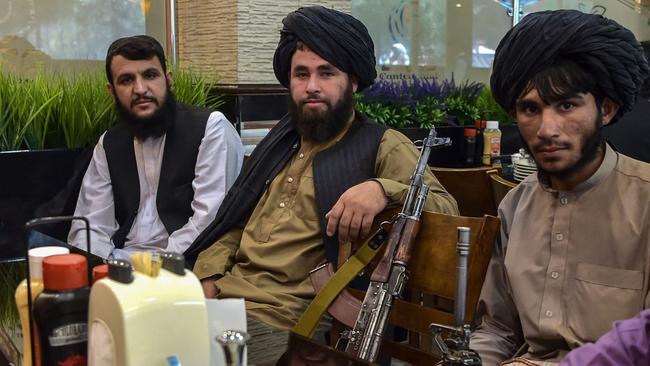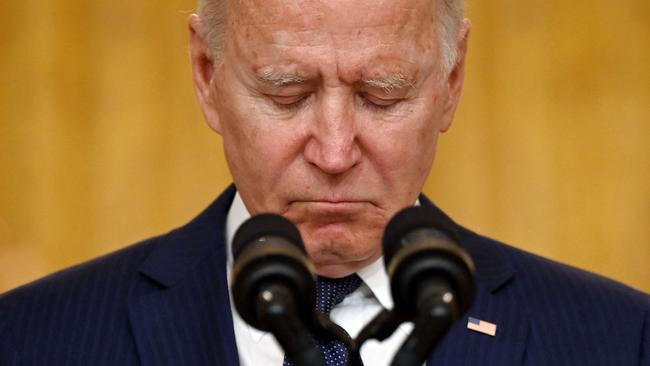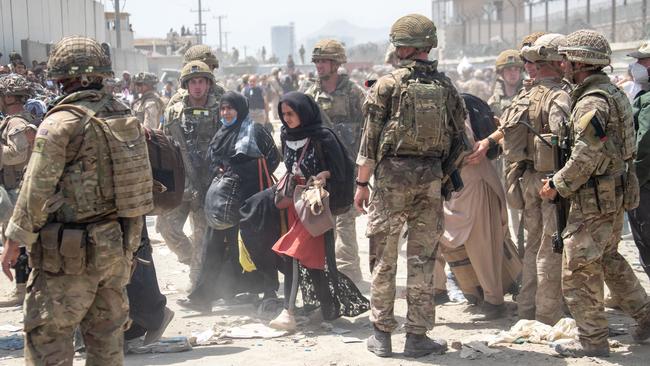James Campbell: Why China sees a US loss in Afghanistan as its gain
Joe Biden should not have been surprised at this week’s events in Afghanistan. The US President has lived through this same situation before, writes James Campbell.
Opinion
Don't miss out on the headlines from Opinion. Followed categories will be added to My News.
It is surprising that in all arguments about whether America’s defeat in Afghanistan is more or less humiliating than its defeat nearly half a century ago in South Vietnam, no one, as far as I am aware, has pointed out that Joe Biden’s political career has managed to span both of these disasters.
And not just Biden’s. Two of the leading players of the second Bush administration when the Afghan war began back in 2001 — vice-president Dick Cheney and Defence Secretary Donald Rumsfeld — were veterans of the Nixon Administration that finally called time on America’s involvement in Vietnam in 1973.
That was two months after Biden first entered the Senate, around the same time the Whitlam government was just getting under way here.

For Australia’s politicians Whitlam, like Vietnam, is ancient history. None of the current crop of MPs has been in parliament longer than the 1990s, and the last one to have been in parliament during the war was Philip Ruddock, who left politics five years ago.
In fact not only were Australia’s politicians not in Canberra during the Vietnam War, most of them were children or, like Jim Chalmers, had yet to be born.
Indeed, there’s only one MP old enough to have served in Vietnam, Russell Broadbent from Victoria, who turned 18 in 1968.
In America, things are different. Ten members of the current Congress have served more than 40 years, while four of them were there in 1975 alongside Joe Biden when he voted to halve US aid to South Vietnam — a decision which some have argued was one of the triggers for South Vietnam’s collapse.
In other words, Biden didn’t have to watch Ken Burns’ PBS documentary on Vietnam to know what was likely to happen when America left Kabul, he’d lived it before back in the 1970s.

You can perhaps forgive him for thinking things might have taken a bit longer to unfold in Afghanistan.
South Vietnam took two years to collapse after the Americans left and its soldiers fought bravely until the end.
And even despite chaotic and heartbreaking scenes that unfolded within a month, it is a bit unfair to criticise him for predicting back in July that the regime wasn’t facing imminent collapse.
What else was he supposed to say when he was asked?
If he’d hinted publicly that he thought it tottering, everyone would now be screaming at him for undermining our loyal allies who, up until then, had been preparing to fight to the last man.
In this he was like a regulator being asked if a bank is sound. Anything else but a full-throated “absolutely!” is to immediately invite a run from depositors. His experience of Vietnam might also have led him to the belief that while dumping an ally that outlived its usefulness might be unseemly, the cruel reality is it won’t matter in the long run.
America survived and prospered in the world after the fall of Saigon, just as it survived its exit from Lebanon eight years later.
Ten years later the Soviet Union was history.

Moreover, if you want to stretch the Cold War parallel you could argue America’s defeat in Saigon actually played a part in its demise because it encouraged Moscow into adventures in Afghanistan, Africa and Central America, adventures that it couldn’t afford.
Which, come to think of it, isn’t that comforting at all, because the last thing we need at the moment is anything that encourages Beijing’s delusions of grandeur.
What makes China much more dangerous than the USSR is that China’s economy is not a ramshackle mess but huge and growing.
And its leadership is actually far more Marxist than the cynics who were in charge of the Kremlin by the 1980s.
In other words, it’s not just a totalitarian state: it’s a totalitarian state whose leaders are in thrall to a 19th century journalist’s view of history.
And, like all Marxists, where you and I might see random events, they see evidence to fit a theory.
As writers have pointed out, the turning point in China’s recent relations with the West was not the rise of hard man Xi but the GFC because they didn’t see it just see it as one of those things that happen from time to time, but a SIGN. The danger is they’ll see this as a SIGN too.
And for many reasons, they’re more likely than the Russians to miscalculate in a big way.
The collapse of Kabul does not affect the reality of America’s power in the world.
The danger is it causes others to wrongly think it has.
Originally published as James Campbell: Why China sees a US loss in Afghanistan as its gain



